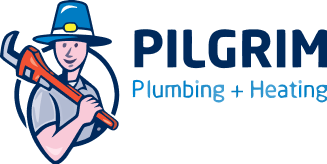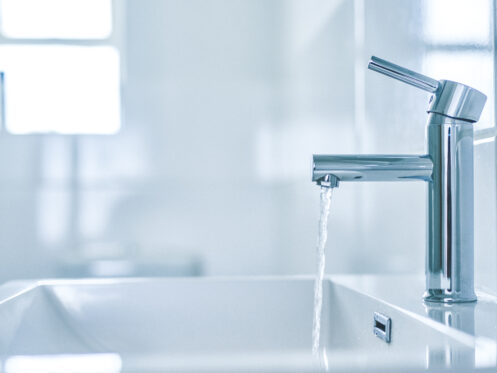Plumbing issues can create stress and unwelcome expenses, but with some knowledge and proactive steps, you can avoid some of the most common plumbing issues. Regular maintenance can help prevent major plumbing problems and extend your system’s lifespan. At Pilgrim Plumbing, Inc. in Norwell, MA, we want to help our customers understand how regular maintenance can save them money on their plumbing bills. Read on to learn more about what steps you can take to protect your plumbing system.
1. Install Water-Saving Fixtures
Installing water-saving fixtures like low-flow showerheads and faucets can help reduce your water usage without impacting performance. These fixtures are designed to use less water while maintaining strong water pressure, making them an eco-friendly and cost-effective solution. Water-efficient toilets can also help you save gallons of water per flush. Over time, the savings on your water bill can be significant. This simple upgrade conserves water and lowers your utility costs, saving the environment and your wallet.
2. Insulate Your Pipes
Insulating your pipes effectively prevents heat loss and protects them from freezing during cold weather. Pipe insulation helps maintain your water temperature as it travels throughout your home, improving energy efficiency and reducing heating costs. It also prevents your pipes from freezing or bursting, leading to expensive repairs. Insulating your pipes is a relatively inexpensive upgrade that is a smart investment for any homeowner who wants to protect their plumbing system. It can extend the lifespan of your pipes by up to 10 years, saving you from the cost of premature replacements.
3. Fix Leaks Immediately
Addressing leaks as soon as they are discovered is critical to prevent water waste and to avoid more serious plumbing problems. Even small drips can add up to a large amount of water loss and waste over time, which will increase your utility bills. If left unaddressed, leaks can also cause structural damage, mildew mold growth, and other internal issues. Regularly check your toilets, pipes, faucets, and other water fixtures for signs of leaks. If you find signs of a leak, repair the problem immediately. Contact a professional plumbing company to handle more serious leaks that require a complex fix.
4. Use a Drain Strainer
Using a drain strainer in your showers and sinks is a great way to prevent clogs and keep your drains flowing smoothly. Strainers can catch food particles, hair, and other debris before they enter your pipes and cause a blockage. Not using a drain strainer can lead to frequent clogs, which can be a hassle to clear and may require the services of a professional plumber. Regularly emptying and cleaning the strainers will keep your drains clear and reduce the likelihood of needing a professional plumber.
5. Know Your Water Main So You Can Shut It Off During Leaks
Knowing the location of your water main and how to shut it off is a necessary home improvement skill. If a major leak or plumbing emergency happens, you will need to immediately turn off your water main and then call your emergency plumber. If a pipe bursts or there is another significant leak, turning off the water supply can prevent additional water damage to your home. You can ask your regular plumber where your water supply main is and how to use the shut-off valve.
6. Watch What You Flush
Paying attention to what you flush down the toilet can help keep clogs at bay and protect your plumbing system. Only flush human waste and toilet paper down the drain. Do not flush wipes, feminine products, face wipes, cotton balls, or other products down the toilet. Even products that are labeled as flushable can cause issues if they are flushed. Keep inappropriate materials away from your toilet, and you’ll avoid costly toilet repairs.
7. Maintain Your Water Heater
Regular maintenance of your water heater will ensure its efficiency and longevity. Flushing the tank annually will remove sediment buildup that can reduce heating efficiency and cause corrosion. Inspect the anode rod every few years, and replace it when it needs to be replaced. This will help prevent rust.
8. Install a Water Softener
Installing a water softener is a great way to combat hard water issues. Hard water contains high levels of minerals such as calcium and magnesium. Hard water can generate mineral buildup that gets into your pipes and appliances, interfering with proper long-term operation. A water softener can remove these minerals, preventing scale formation and improving water quality. This can lead to longer-lasting appliances and softer skin and hair. There is an upfront cost, but the savings on maintenance and replacements make a water softener a worthwhile investment for many homeowners.
9. Use Vinegar to Clean
Using vinegar to clean plumbing fixtures is an effective and eco-friendly way to remove mineral deposits and improve water flow. Soak your showerheads, faucets, and other exterior plumbing fixtures in vinegar to dissolve calcium and lime buildup and to restore their performance. This inexpensive household item offers a natural alternative to commercial cleaners.
10. Check Water Pressure
Regularly checking your water pressure will help you avoid stressing your plumbing system. We recommend keeping your plumbing system’s water pressure within the safe range of 40-60 PSI. Use a pressure gauge to test your home’s water pressure. If it is too high, consider installing a pressure regulator.
11. Wrap Faucet Handles in Winter
In colder months, we recommend wrapping any outdoor faucet handles with insulation or using faucet covers. This can prevent freezing or bursting of your pipes. Frozen faucets are damaging and can lead to costly repairs. Insulating these exposed areas helps to retain heat and protect them from harsh weather.
12. Upgrade to PEX Piping
PEX piping offers many benefits compared to traditional materials like copper or PVC. PEX is flexible, resistant to chlorine and scale, and can withstand freezing temperatures better. Its flexibility allows for easier installation and fewer fittings as well as reducing the potential for leaks. PEX piping is also less expensive than traditional models and easier to install.
13. Use Enzyme Cleaners
Enzyme-based drain cleaners are another great way to clean your pipes and keep them clear of organic buildup from kitchen or bathroom activities. The harsh cleaners found in stores often use heavy chemicals that are abrasive and that can damage your system. Using an enzyme-based cleaner is a safe and effective way to keep your pipes in good condition.
14. Install a Leak Detector
Installing smart leak detectors can provide peace of mind by letting you know when leaks are happening in real time. These devices monitor and look for unusual moisture levels and send notifications to your phone, which lets you address leaks before they cause significant damage. Leak detectors can also be placed near water heaters, under sinks, near washing machines, and in other places where your system might be vulnerable to leaks.
15. Check Washing Machine Hoses Quarterly
Inspecting your washing machine hoses every few hours helps to prevent unexpected bursts and flooding. Look for signs of wear, bulges, cracks, or other issues in the hoses and replace them if necessary. Use stainless steel braided hoses for added durability and longevity.
Contact Us Today
By incorporating these 15 practical plumbing tips into your home maintenance routine, you can enjoy the benefits of a well-functioning plumbing system and save significant money. Regular cleaning, ongoing upkeep, mindful usage, and timely interventions can prevent minor issues from becoming major repairs. Not only will you conserve water and reduce utility bills, but you’ll also extend the lifespan of your plumbing fixtures and appliances.
Whether you’re dealing with minor leaks, upgrading fixtures, or preventing clogs, these tips will help you take control of your home’s plumbing health. Contact Pilgrim Plumbing, Inc. today for help with the maintenance needed for your plumbing system. We also help with plumbing repair, including complex drain and sewer services, gas lines, boilers, and remodeling services for bathrooms and kitchens.



